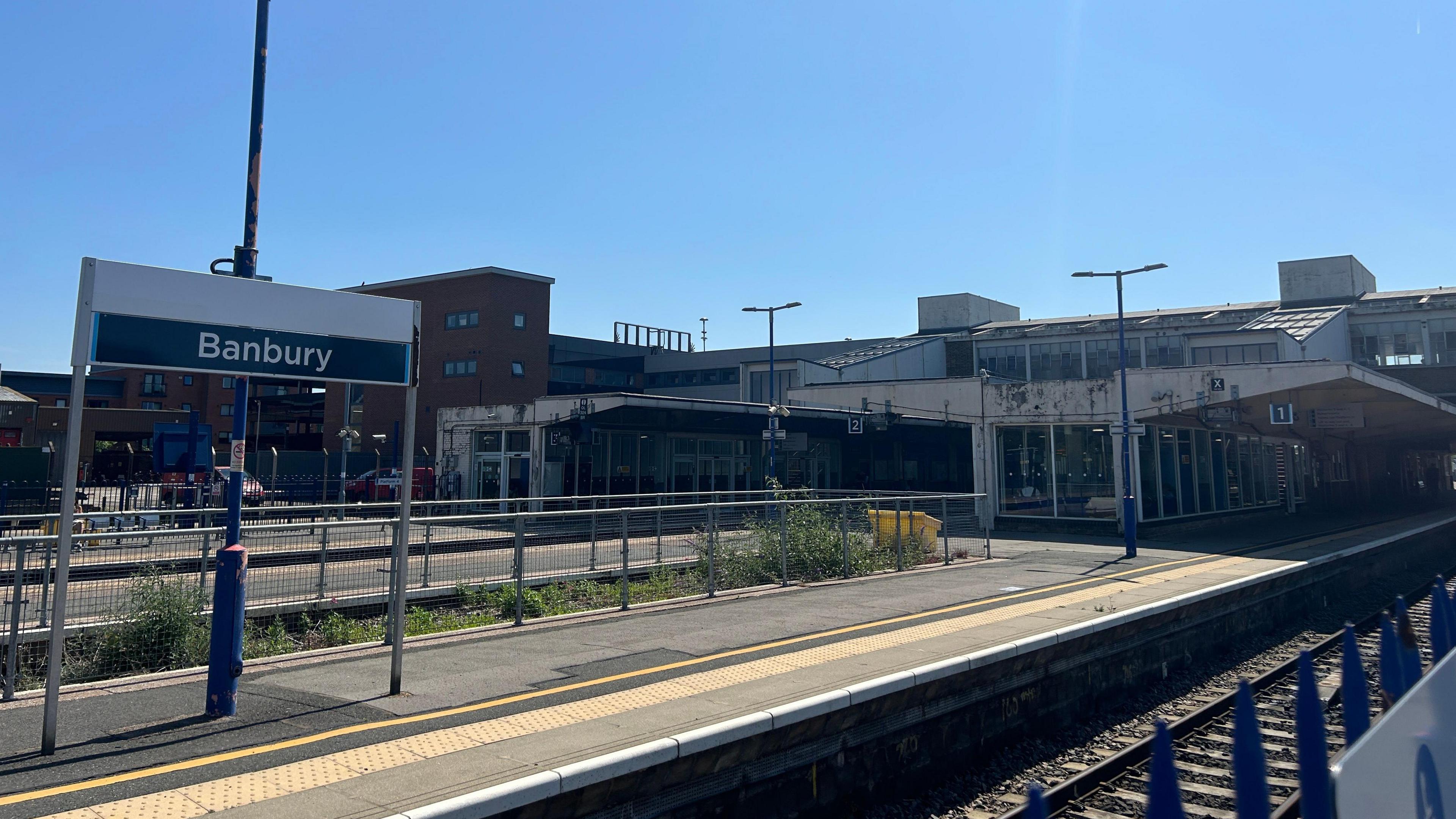Train two seconds from hitting tanker - report
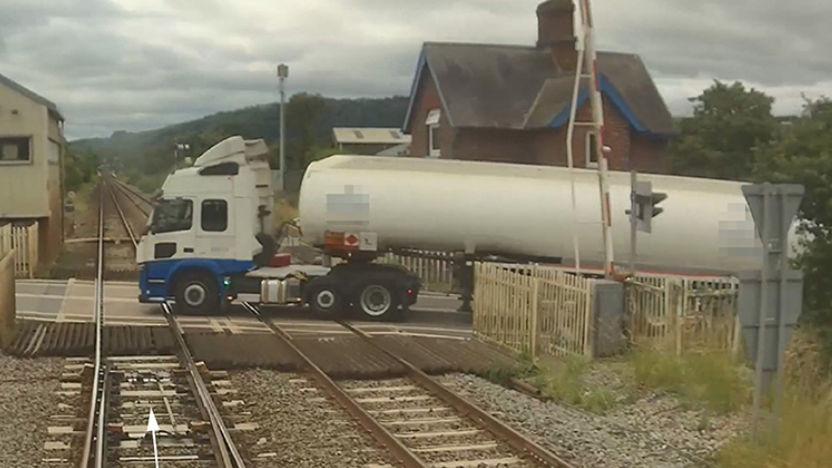
The tanker came within seconds of being hit by the train, investigators found
- Published
A train was about two seconds from hitting a tanker on a level crossing due to safety failings, an investigation found.
The near miss at Craven Arms in Shropshire on 22 July happened when an engineering train was given the go-head to head over the manually controlled crossing while the barriers were up.
The controls and safeguards used to operate the crossing had been bypassed by the signaller at the time, the Rail Accident Investigation Branch (RAIB) said in its report, external.
The train was travelling at about 15mph (24kph) and had to make an emergency stop when its driver saw the tanker.
No-one was hurt, the tanker driver was unaware of the near miss and the train came to a standstill over the crossing, the RAIB said.
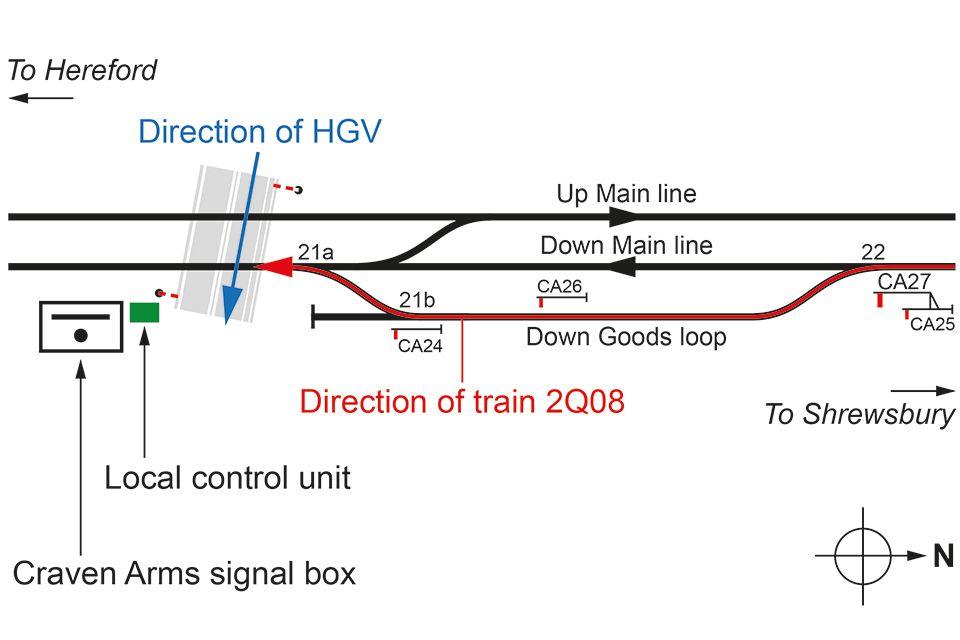
The engineering train was heading out of the Down Goods loop when its driver saw the tanker on the crossing, the investigation found
The engineering train had been due to check the track on a loop of railway near the level crossing but the signaller had not received the email which said this which had been sent three days beforehand.
While trying to set its route on the day, the signaller said they felt rushed to get the train through but there were problems with the barrier locking levers in the signal box and they were also conscious of traffic building up on the road, investigators heard.
That led to them using a local control unit (LCU) outside the signal box, which overrides the barriers system in the event of a failure or for maintenance work.
Signallers at Craven Arms were not allowed to use the LCU for such failures but there were no further checks of how the unit was used after they were initially trained, said the RAIB.
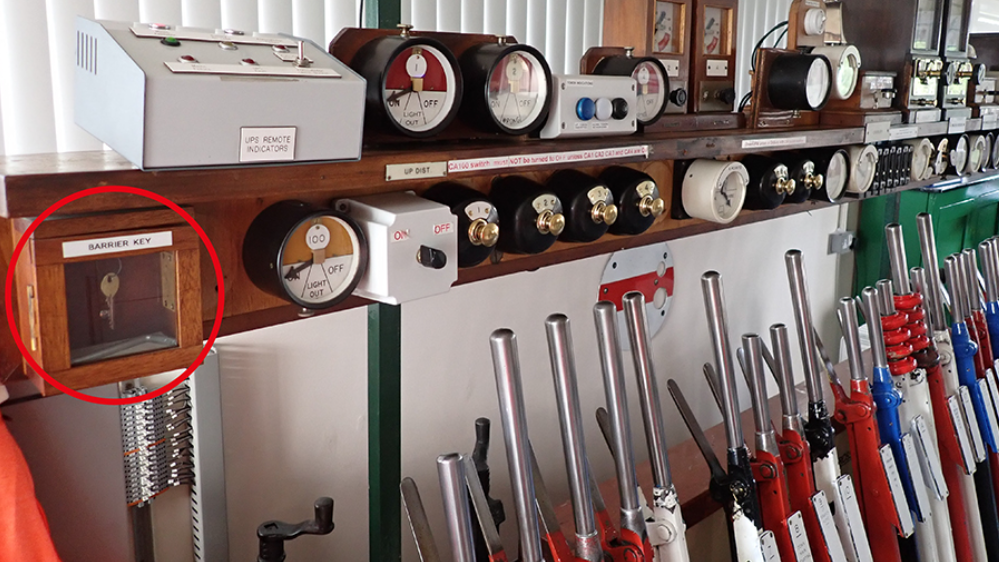
The box with the key in to access the level crossing's local control unit was not locked or sealed, the report said
The key to access the unit was in the signal box in a glass-fronted box which should have needed them to smash the glass to get it out.
But the RAIB found afterwards the box at Craven Arms was not locked or sealed and it had been opened 359 times since November 2021.
This suggested it was routinely used by signallers to operate the crossing before the near miss, the report said.
No faults were found with the signalling system itself.
The RAIB said there was no evidence that local railway managers and supervisors were aware of how often the LCU was used or in how signallers were monitored over its use.
A series of safety messages were issued by investigators after the near miss including making sure cases meant to be secure were actually sealed or locked.
Get in touch
Tell us which stories we should cover in Shropshire
Follow BBC Shropshire on BBC Sounds, Facebook, external, X, external and Instagram, external.
Related topics
More like this story
- Published2 August 2024
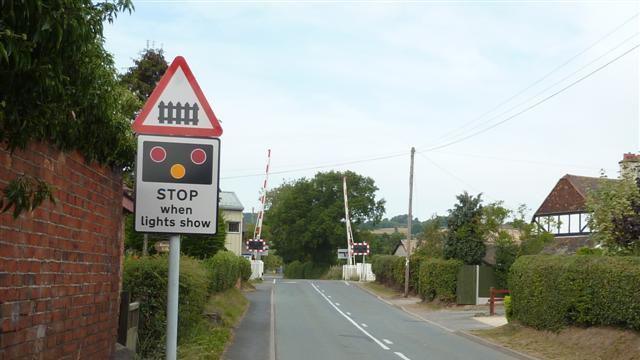
- Published17 September 2024
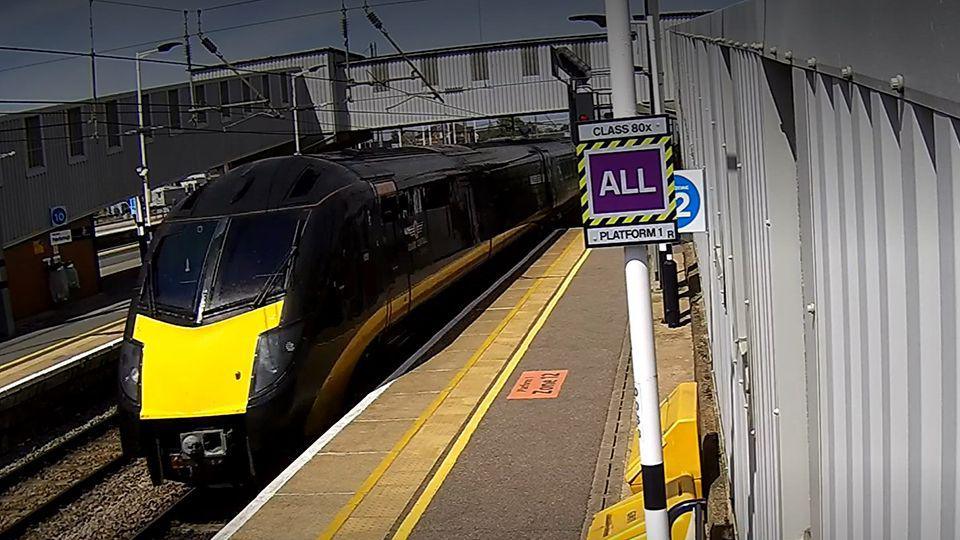
- Published19 July 2024
